Bringing Back The National Anthem
By Samantha L. Quigley
American Forces Press Service
WASHINGTON,– They may not see much by the
dawn's early light, but
apparently well over half of all Americans are completely
in the dark when it
comes to the words of the national anthem, according to a
Harris Interactive
Survey of 2,204 Americans.
An ABC news poll also showed that roughly 38 percent of
American teens didn't
know the actual name of the nation's official song. It's
"The Star-Spangled
Banner," if you weren't sure.
In 1931, President Herbert Hoover signed a bill officially
making the poem --
written by Francis Scott Key in 1814 and set to music by
John Stafford Smith --
the United States' national anthem. But it seems that, for
various reasons,
America has lost its voice, said John J. Mahlmann,
executive director of the
National Association for Music Education, which still uses
the acronym MENC
from a prior name of the organization.
America apparently has been at a loss for words for quite a
while, Mahlmann
said Nov. 4 in an interview with the Pentagon Channel and
American Forces Press
Service. He and MENC are launching "The National Anthem
Project" to reverse the
trend.
The project is set to launch March 10, in conjunction with
the PBS airing of
"The 21st World's Largest Concert." The WLC, performed by 8
million to 10
million children, will end with "The Star-Spangled Banner."
Mahlmann and his
staff are hoping to get servicemembers in Iraq to
participate by singing the
anthem, he said.
The project is set to culminate in 2007 with a
"record-setting" performance of
the national anthem in Washington.
Between the project's launch and its conclusion, Mahlmann
said, a grassroots
movement will try to reach students, teachers and
communities. The movement is
being fostered by partnerships of American organizations
that should be
concerned about this program, he said. Currently, those
organizations include
the Defense Department, Disney, the Girl Scouts, the
American Legion, A&E and
the History Channel.
"We're looking for a grassroots campaign, first of all. And
then we're looking
for activities to take this program on the road to
communities throughout the
nation, where we can encourage Americans to sing and
participate and learn the
words," Mahlmann said. Of course, he said, classroom and
music teachers are
being encouraged to participate.
One effort to promote the re-endearment of "The
Star-Spangled Banner" is
already complete. "Liberty For All: A Musical Journey" is a
compact disk of
patriotic music and American history. Introduced by retired
Army Gen. Tommy
Franks, the music is performed by "The President's Own"
Marine Corps Band.
Mahlmann said the band was chosen in part because it is the
oldest of the
service bands, dating back to the 1700s. Proceeds from the
sale of the CD will
benefit The National Anthem Project and the Marine Corps
Scholarship
Foundation.
Some claim that the national anthem is not known because
it's difficult to
sing. "I think it's difficult to sing, but on the other
hand, that's why we
have music teachers," Mahlmann said. "And our campaign is
going to help
Americans overcome that and be able to sing the national
anthem, as they
should."
School budget cuts share a measure of blame in the
silencing of America,
Mahlmann said. And school is where most polled in the
Harris survey indicated
that, if they knew the song, is where they learned it.
"Our concern … is that school music programs are under fire
and being cut. And
that -- in school music programs -- is where people learn
songs, including
patriotic songs like the national anthem," Mahlmann said.
"That's not
happening. People aren't learning the words."
The cuts are a double whammy, as patriotic music carries
with it a great deal
of American history, he added.
Five percent, of those polled in the Harris survey claim to
have learned the
song at a sporting event. This is curious, Mahlmann said,
because sporting
events are where it is the most apparent that the lyrics
are eluding most
Americans.
"It seemed … a very obvious fact that when you go to
sporting events, people
don't sing the national anthem or when you see people at
the Olympics with
their awards ceremonies, they're not singing the national
anthem," he said.
"When America is under crisis, as we were on 9/11, we saw
what Congress did
immediately: They went on the steps of the Capitol and
sang," he said. Song is
a unifying force that encourages appreciation of what
people have, he added.
"It's something that brings our emotions and our values
together through song
and through spirit and America's soul," Mahlmann said. "And
so our goal and our
mission through that activity of singing seemed to be an
appropriate time to
focus on our national anthem, which again, because of
people not knowing the
words, we should encourage."
American Forces Press Service
WASHINGTON,– They may not see much by the
dawn's early light, but
apparently well over half of all Americans are completely
in the dark when it
comes to the words of the national anthem, according to a
Harris Interactive
Survey of 2,204 Americans.
An ABC news poll also showed that roughly 38 percent of
American teens didn't
know the actual name of the nation's official song. It's
"The Star-Spangled
Banner," if you weren't sure.
In 1931, President Herbert Hoover signed a bill officially
making the poem --
written by Francis Scott Key in 1814 and set to music by
John Stafford Smith --
the United States' national anthem. But it seems that, for
various reasons,
America has lost its voice, said John J. Mahlmann,
executive director of the
National Association for Music Education, which still uses
the acronym MENC
from a prior name of the organization.
America apparently has been at a loss for words for quite a
while, Mahlmann
said Nov. 4 in an interview with the Pentagon Channel and
American Forces Press
Service. He and MENC are launching "The National Anthem
Project" to reverse the
trend.
The project is set to launch March 10, in conjunction with
the PBS airing of
"The 21st World's Largest Concert." The WLC, performed by 8
million to 10
million children, will end with "The Star-Spangled Banner."
Mahlmann and his
staff are hoping to get servicemembers in Iraq to
participate by singing the
anthem, he said.
The project is set to culminate in 2007 with a
"record-setting" performance of
the national anthem in Washington.
Between the project's launch and its conclusion, Mahlmann
said, a grassroots
movement will try to reach students, teachers and
communities. The movement is
being fostered by partnerships of American organizations
that should be
concerned about this program, he said. Currently, those
organizations include
the Defense Department, Disney, the Girl Scouts, the
American Legion, A&E and
the History Channel.
"We're looking for a grassroots campaign, first of all. And
then we're looking
for activities to take this program on the road to
communities throughout the
nation, where we can encourage Americans to sing and
participate and learn the
words," Mahlmann said. Of course, he said, classroom and
music teachers are
being encouraged to participate.
One effort to promote the re-endearment of "The
Star-Spangled Banner" is
already complete. "Liberty For All: A Musical Journey" is a
compact disk of
patriotic music and American history. Introduced by retired
Army Gen. Tommy
Franks, the music is performed by "The President's Own"
Marine Corps Band.
Mahlmann said the band was chosen in part because it is the
oldest of the
service bands, dating back to the 1700s. Proceeds from the
sale of the CD will
benefit The National Anthem Project and the Marine Corps
Scholarship
Foundation.
Some claim that the national anthem is not known because
it's difficult to
sing. "I think it's difficult to sing, but on the other
hand, that's why we
have music teachers," Mahlmann said. "And our campaign is
going to help
Americans overcome that and be able to sing the national
anthem, as they
should."
School budget cuts share a measure of blame in the
silencing of America,
Mahlmann said. And school is where most polled in the
Harris survey indicated
that, if they knew the song, is where they learned it.
"Our concern … is that school music programs are under fire
and being cut. And
that -- in school music programs -- is where people learn
songs, including
patriotic songs like the national anthem," Mahlmann said.
"That's not
happening. People aren't learning the words."
The cuts are a double whammy, as patriotic music carries
with it a great deal
of American history, he added.
Five percent, of those polled in the Harris survey claim to
have learned the
song at a sporting event. This is curious, Mahlmann said,
because sporting
events are where it is the most apparent that the lyrics
are eluding most
Americans.
"It seemed … a very obvious fact that when you go to
sporting events, people
don't sing the national anthem or when you see people at
the Olympics with
their awards ceremonies, they're not singing the national
anthem," he said.
"When America is under crisis, as we were on 9/11, we saw
what Congress did
immediately: They went on the steps of the Capitol and
sang," he said. Song is
a unifying force that encourages appreciation of what
people have, he added.
"It's something that brings our emotions and our values
together through song
and through spirit and America's soul," Mahlmann said. "And
so our goal and our
mission through that activity of singing seemed to be an
appropriate time to
focus on our national anthem, which again, because of
people not knowing the
words, we should encourage."

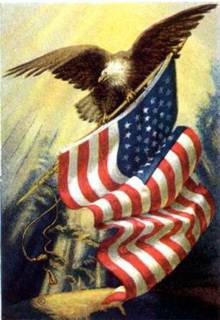






















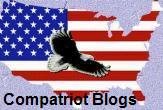



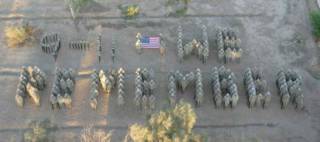
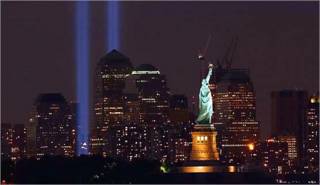








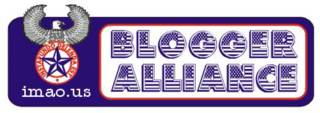
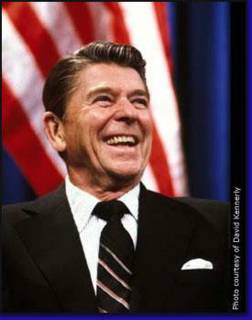
0 Comments:
Post a Comment
<< Home